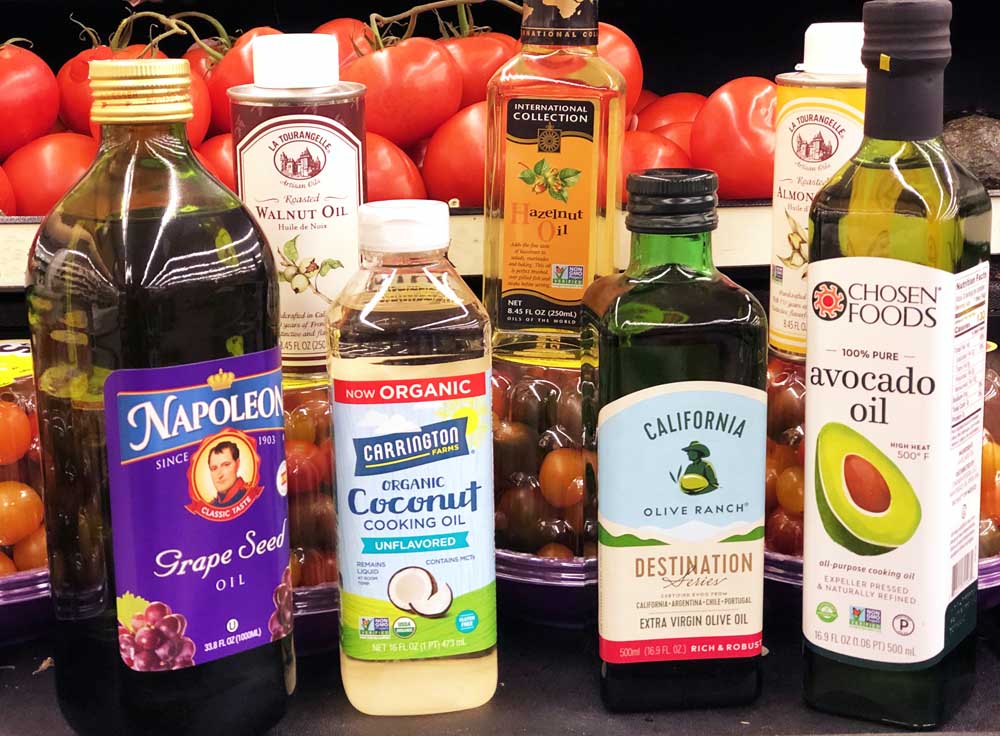Good Foods, Good Health
Published 6:00 am Wednesday, December 11, 2019

- The diversity of plant oils available in stores has grown almost exponentially. Knowing their individual benefits and limitations is important in using and consuming them to make the most of their different characteristics.
Guilty! I confess. During the winter I do my walking exercise inside the grocery stores. The walking gives me an opportunity to shop at the same time. Note, I say shop, not buy yet. The important thought is to shop and read before buying. This can save you money and make sure you purchase exactly what you think you are buying. The advertising on the front of a box or jar is not always the complete information you need. No Sugar! (What is taking its place?) Heart Healthy! (maybe, maybe not) Natural! (Cardboard is sort of natural.)
The other day I was trying to make up my mind about different cooking oils. There is so much contrasting information about unsaturated and saturated oil, and butter vs margarine that I needed to pause and evaluate what I heard. First off, some saturated fats are good for us and some unsaturated vegetable oils and hydrogenated fats are bad for us. After researching new information, I had a different outlook.
Trending
I’m interested in lowering my cholesterol count. There are books on the subject, but one new thing I found out is that butter is one of those good saturated fats. It contains a balanced amount of good acids that prevents problems caused by too much omega 6 in our diet. Things get complicated so let’s just look at the everyday oil and fats that we use. Thanks to Nutritionist, Sally Fallon, there is a simple chart that gives us information on oils. Olive oil is the safest vegetable oil to use. Make sure it is 100% pure and is Extra Virgin expeller pressed for the highest quality. Peanut oil has a lot of omega 6 and should be used sparingly. Safflower, Corn, Sunflower, Soybean and Cottonseed oils are loaded with dangerous levels of omega 6 and should never be heated for frying or baking or cooking. Canola oil looks good on the surface of research, but in short has many problems. It goes rancid rapidly and if used in baked goods develops mold easily. Processing turns it into a trans-fat, creates a deficiency of vitamin E and causes heart lesions. Flax seed oil can go rancid if not kept in the refrigerator. It should never be heated, and only used in small amounts for salad dressings and spreads. Tropical oils, Palm and Coconut are stable at room temperature and will not go rancid for months. These oils do not cause heart disease and have been used for centuries with many health benefits. They are wonderful for cooking, baking and frying. Avocado oil can be heated to high temperatures without smoking. Other oils readily available in the market include grapeseed oil which also has a high-temperature smoke point but due to it’s high omega 6 content should be used sparingly. Tree nut oils available include walnut oil. Walnut oil, like the nuts, is high in the good-for-you omega 3’s. But it doesn’t take well to higher temperatures. It will impart a slightly nutty, light flavor to your salads though. There are other oils out there, too. Each has its own properties, and they are all worth exploring.
Roasted Roots
Heat oven to 400 degrees F. Wash two potatoes, two beets and two sweet potatoes or yams. (You may also add carrots and/or rutabagas) You do not need to peel the beets, carrots, and potatoes unless you really, really want to. (Most vitamins are just under or in the peel.) Cut them into quarters and place them into a bowl. Drizzle 2 or 3 tablespoons of olive oil (or avocado oil) over the vegetables and toss them with salt, pepper, garlic granules and oregano to taste, (or any other combinations you like). Coat the vegetables well and place on a cookie sheet or shallow roasting pan. Roast for about 40 minutes or until done. These three vegetables will cook at about the same time. They will caramelize on the outside and be softer on the inside.








